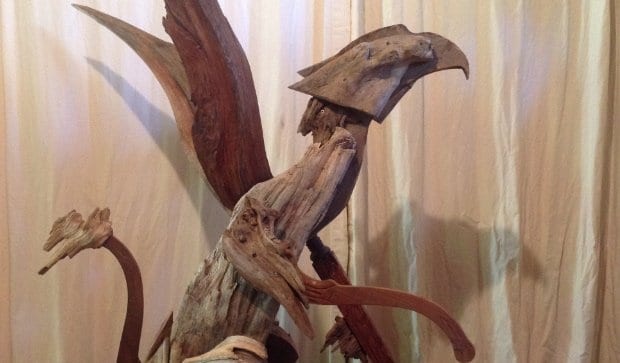Many people in the queer community have experienced discrimination, isolation and a lack of proper support. For those who are queer and also have a disability, those issues can become magnified. Now a local festival is giving queer artists with disabilities the opportunity to showcase their talents and make their voices heard.
The Kickstart 5 festival, which runs Sept 5 to 8, celebrates Canadian artists with disabilities. The four-day event includes visual-art exhibits, workshops, forums and live performances that portray unique perspectives of the disability experience.
Emma Kivisild, artistic director of Kickstart Disability Arts & Culture, says there are many similarities between the experiences of people who identify as gay and those who have disabilities, especially with respect to the issue of “normalization.”
“On the one hand, people [with disabilities] want to be recognized as normal,” she says. “And on the other hand, we’re not, and we don’t want to be. We have different things to say, and we have a different experience. Disability art is a part of the revolt against normalization, while others believe that their disability does not define them.”
Kivisild believes that queer artists with disabilities are an essential subset of the disability art world because they inject visibility, offering others a mirror to see themselves.
“People with disabilities are almost never in a film or a play, ever,” she points out, “and to insert queerness in there is very difficult. It’s important to have queer art in disability art because it’s important for queers to see themselves. We don’t see ourselves very much.”
Geoff McMurchy has been involved with Kickstart Disability Arts & Culture since its inception in 1998. After stepping down from his role as artistic director, he’s had more time to focus on his personal artwork and has three sculptures that are appearing in the festival.
“People with disabilities and who are also gay are doubly invisible,” he says. “Of course, my identities as a gay man and as a person with a disability both shape who I am and the choices I make artistically. Generally speaking, the disability thing, just because it’s so consuming on a daily basis, has somewhat eclipsed gayness as an aspect of my total being.”
McMurchy’s work, part of the discipline of assemblage sculpture, uses a variety of salvaged objects he’s collected over the years, including old furniture, driftwood, springs and figurines. As a quadriplegic with very limited use of his limbs, he relied on the help of a technician to bring his vision to life.
“When I step back and consider the three pieces in this show,” he says, “they share common threads around vulnerability and durability, burnout, aging and accepting help — pretty universal themes for us all, I think — but informed somewhat more by my disability identity, which is appropriate given the context.”
Sylvi MacCormac is a musician who was diagnosed with multiple sclerosis in 1981. She knew her condition would eventually affect her ability to perform, so she went back to school and became a soundscape technician, which allows her to use a computer to compose and edit music. Now internationally recognized for her work in the field, she’ll be presenting a workshop on soundscape music and performing along with the band Horizon on Sept 7.
MacCormac identifies as queer, and while she frequently writes about love, community, family and the environment, she says the gay experience doesn’t crop up often in her work.
“Definitions are often confining. I’d rather people just recognize me for my own self,” she says. “I freely admit that I’m queer and I’m supportive of a community that respects all people. There should be no barriers to being oneself and feeling free to express oneself.”
MacCormac is grateful that festivals like Kickstart 5 exist to support artists with disabilities.
“We often underestimate people with disabilities; the emphasis is on the ‘dis’ rather than the ability,” she says. “Festivals like this bring the awareness to the capability. All people should feel welcome and have their voices heard, whether they’re queer or gay or lesbian or straight.”
Kickstart 5 Festival
Thurs, Sept 5–Sun, Sept 8
Roundhouse Community Centre
181 Roundhouse Mews

 Why you can trust Xtra
Why you can trust Xtra


